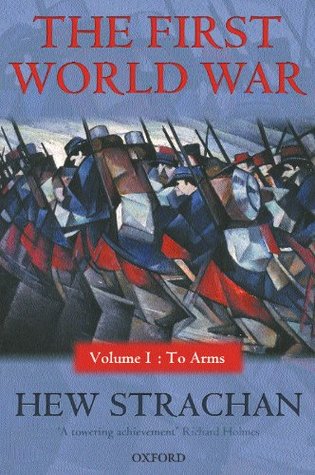Kindle Notes & Highlights
by
Hew Strachan
Read between
October 15, 2020 - January 22, 2021
Germany’s position in Europe after 1871 was at once threatening and vulnerable—threatening because central Europe was now dominated by a major power, casting shadows over Russia to the east and France to the west, and vulnerable because the new state had long, exposed land frontiers in the same directions. For Germany the danger of a revivified France, anxious to revenge the defeat of 1870–1 and to regain the provinces of Alsace-Lorraine, was real enough: the memory of Napoleon’s victories and the subsequent French occupation of Germany coloured Bismarck’s determination that France should be
...more
Until the middle years of the nineteenth century Britain led the world in industrial production; free trade guaranteed access to world markets because no other country could manufacture so much so cheaply. But from then on other countries—particularly the United States and Germany—began to catch up: in 1870 Britain commanded 32 per cent of the world’s manufacturing capacity, but by 1910 it had only 14.7 percent, behind both Germany (15.9 per cent) and the United States (35.3 per cent).
What it seems fairly clear that Germany did not want was war. Many of those who argue that Germany did not plan for war in 1914 point to the 1905 crisis and show how much more favourable to Germany the international position was at that juncture.
Indeed, the German navy in 1905 had no operational plan for war with Britain or with Britain and France.19 Schlieffen recognized that the army did not have the means to attack Britain should Britain support France. Moreover, both Germany’s allies, Italy and Austria-Hungary, looked as militarily weak as did Germany’s putative opponents.
Poincaré himself was a Lorrainer; he was a patriot and he distrusted Germany. But it would be mistaken to conclude that France either sought war or did so to recover Alsace-Lorraine. If Germany and France found themselves at war for other reasons, the lost provinces would, quite clearly, become a war aim for France.
One of the paradoxes of European security before 1914 was that each of the major players— Grey, Bethmann Hollweg, and Poincaré himself—sought to create stability, but each used different means as appropriate to its achievement.
Thus, 1914 closed with the eastern front in a condition as static as that of the west. The line rested for much of its length on natural obstacles—on the Carpathians, on the Dunajec, on the Vistula. But the trenches themselves lacked great sophistication. The hard weather made excavation difficult. The length of the front, double that of the western front, meant that it lacked the density of troops characteristic of France and Belgium. Firepower encouraged dispersion and breadth, and so in operational terms troops lacked the concentration and mass needed to effect a decision.
The battles of 1915 on the eastern front were to be as full of incident and fluidity as those of 1914; those on the western front were not.


